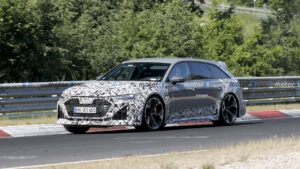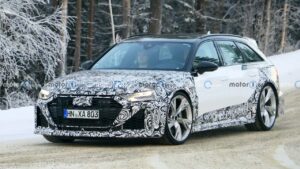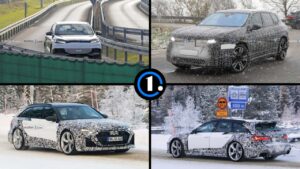Ingolstadt’s speedy wagons aren’t ending with the RS6 GT.
For three decades, Audi has been producing speedy wagons, beginning with the collaboration with Porsche to create the 1994 RS2 Avant. This trend is set to continue as the Four Rings company has made it clear that they are dedicated to creating high-performance Avant models for the foreseeable future. When questioned by reporters about the fate of fast estate cars, Nils Fischer, the technical project manager for the RS 6 GT, confidently stated, “I can confirm without a doubt that there will be a future for these types of vehicles.”
According to Audi, the “model that reaches its maximum” is the limited-run RS6 Avant GT special edition. However, this statement only applies to the outgoing C8 generation. The luxury car brand has confirmed that a successor to the current super wagon will be released before 2026, when Audi plans to exclusively launch electric vehicles. This means that there is still a chance for a final RS6 generation featuring a combustion engine.
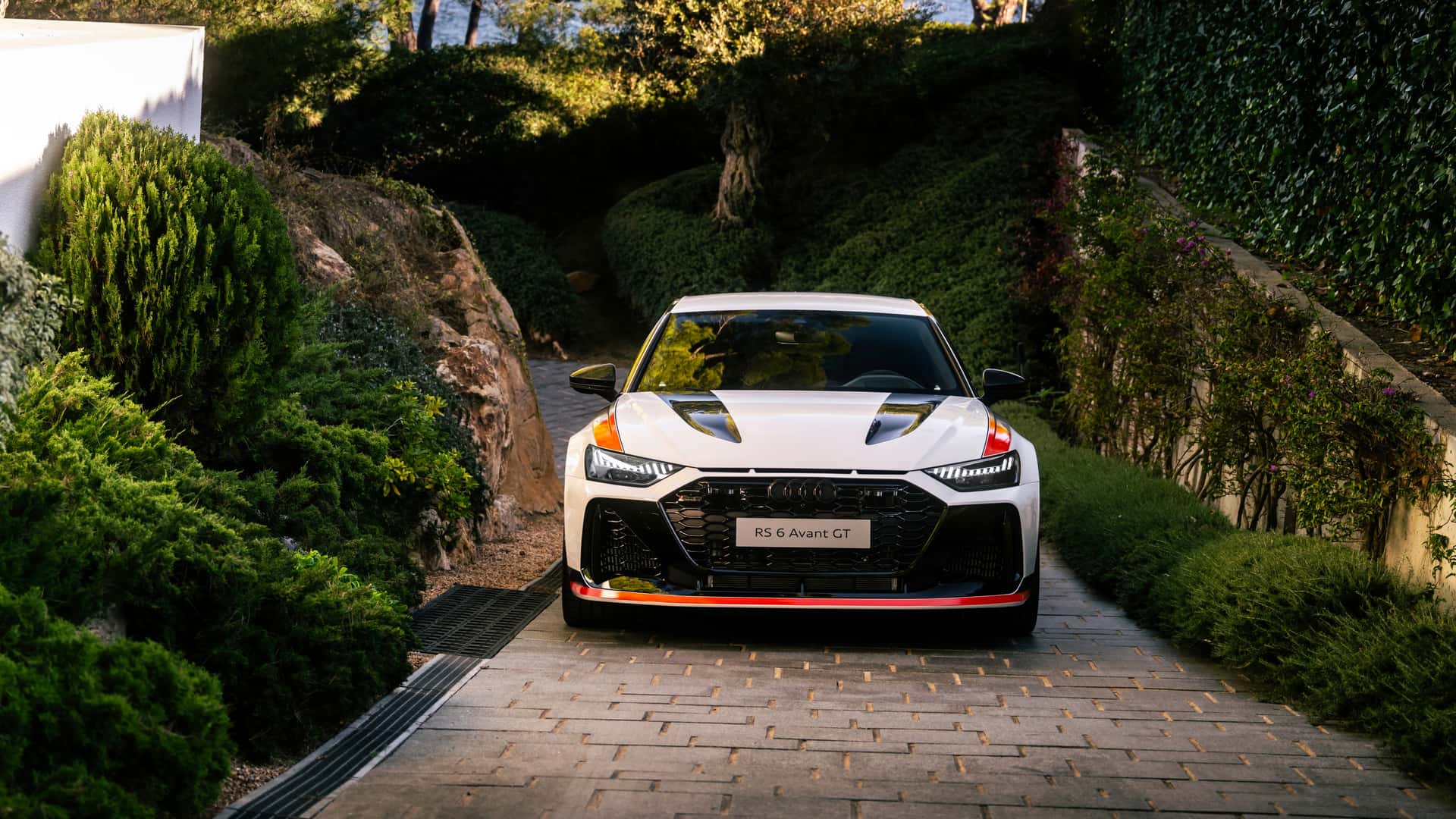
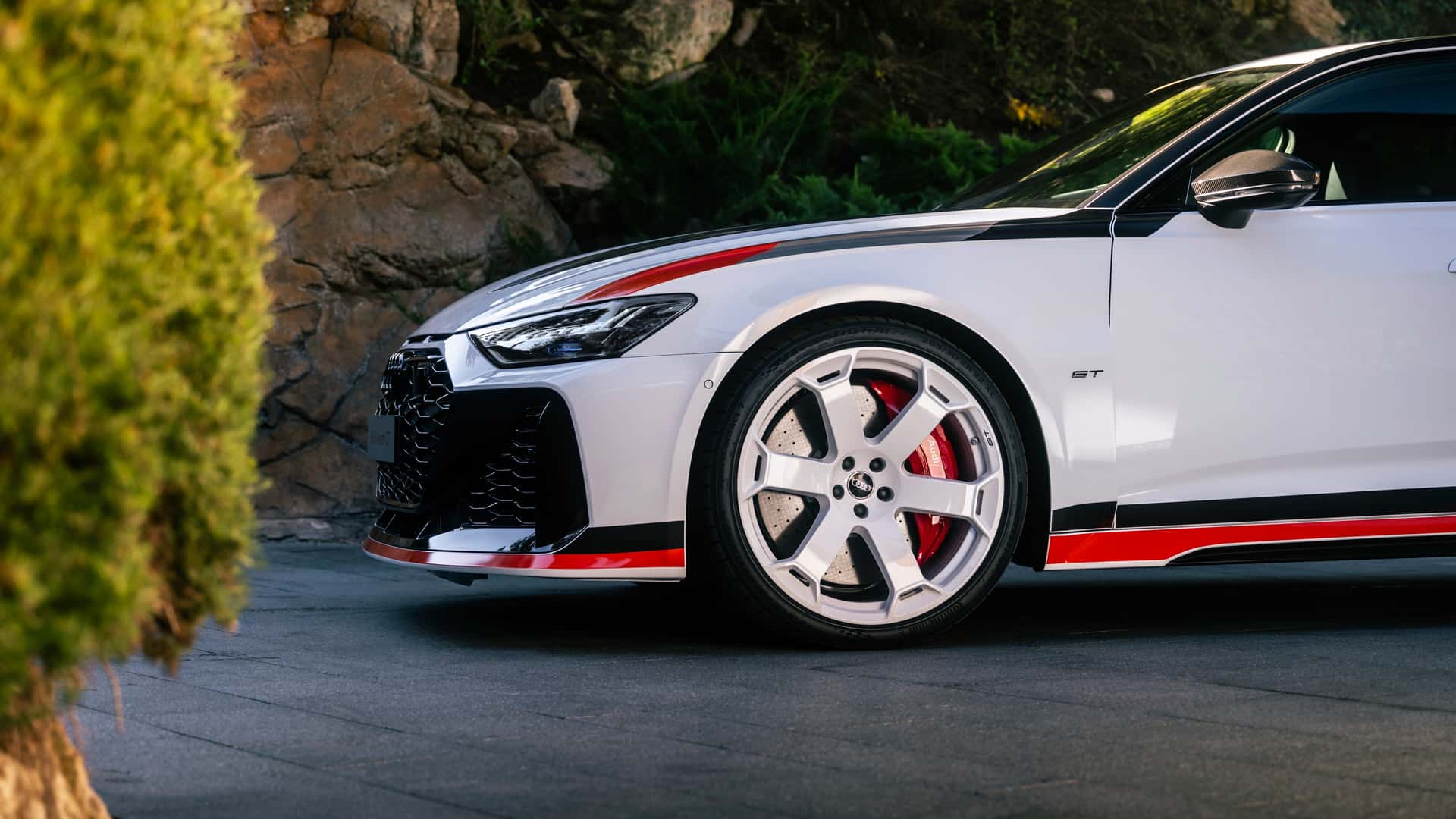
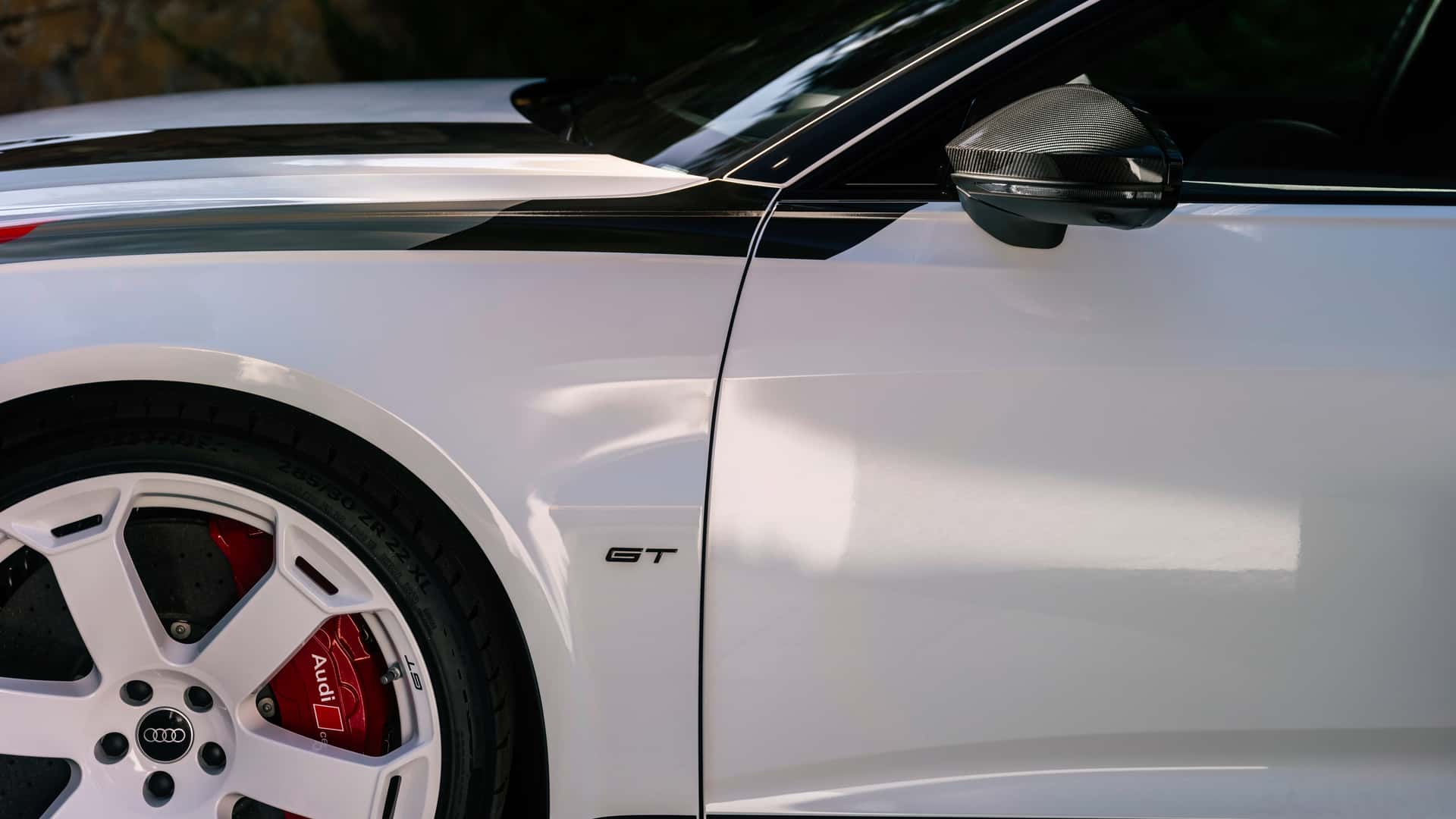
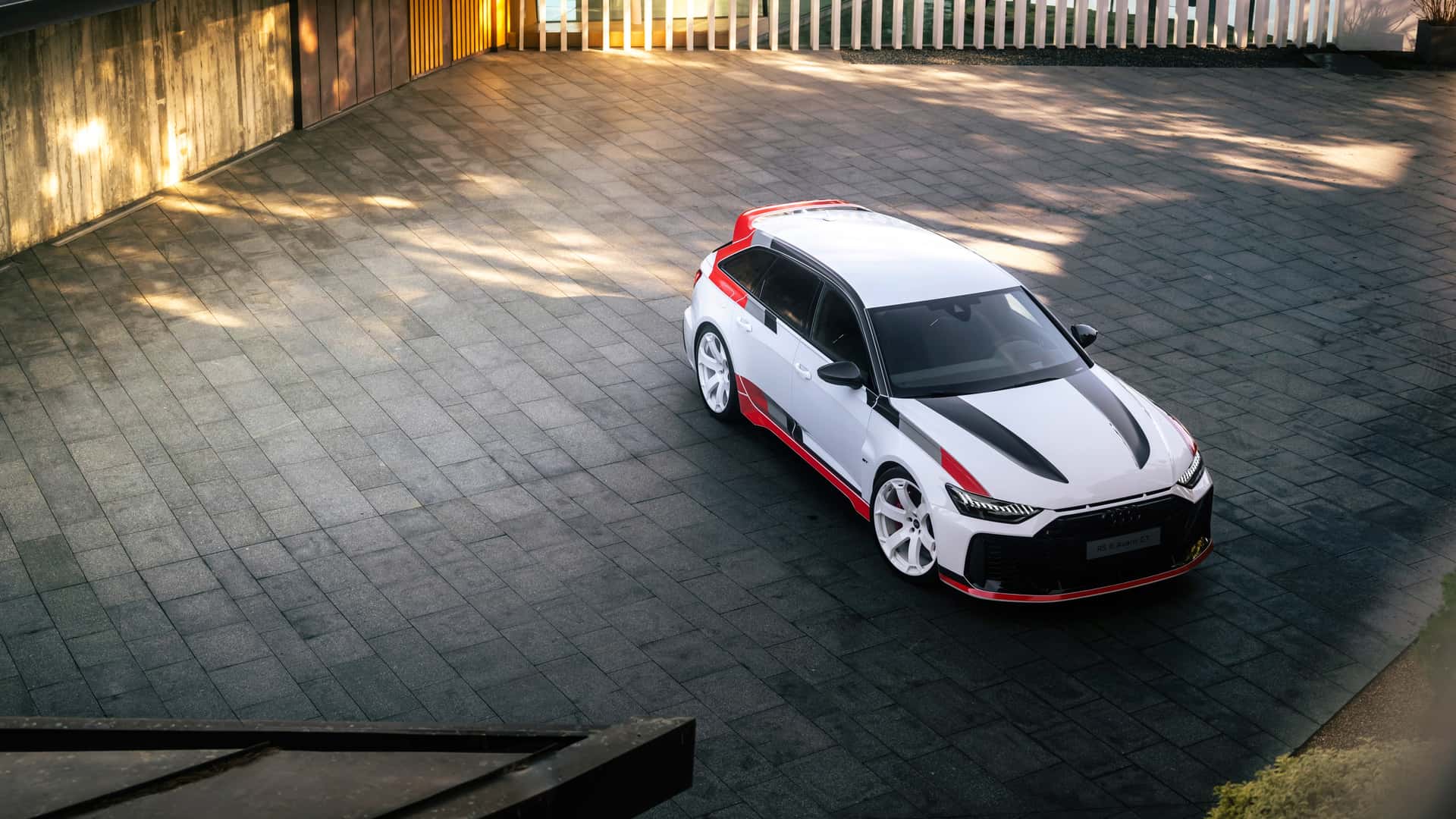
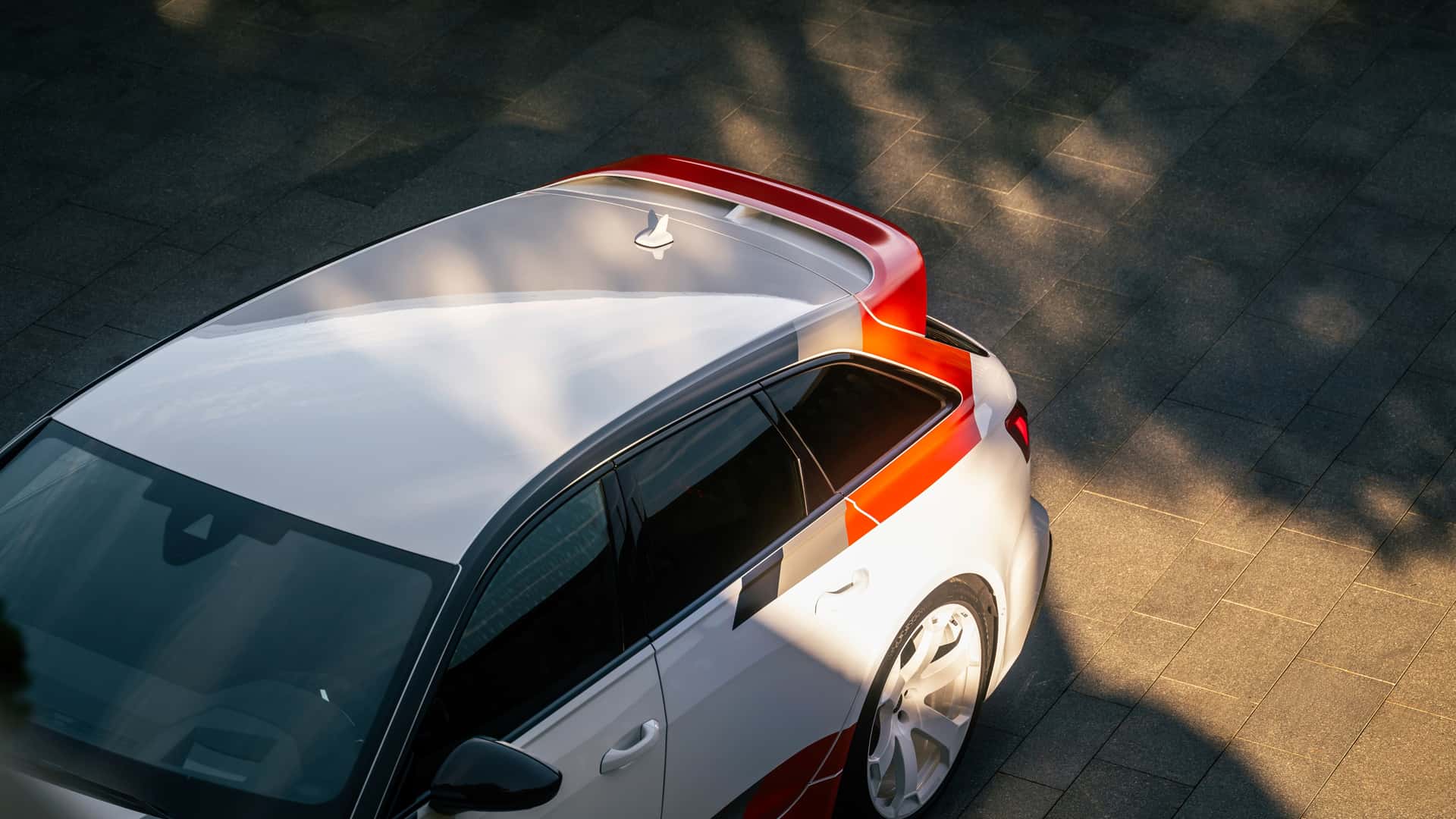
Stephan Reil, the Head of Research & Development at Audi, has affirmed that the upcoming RS6 will retain its traditional gasoline engine, but with an added electric motor. Despite the current model already incorporating a mild-hybrid setup in its twin-turbo 4.0-liter V8, the next iteration is anticipated to introduce a more advanced plug-in hybrid system, ideally with a V8 as its core.
When the upcoming version is released, it will be referred to by a different title. The car brand from Ingolstadt has declared that the A6 line with a traditional engine will now fall under the A7 series. This means that an RS7 Avant will soon be available, although this may seem unusual. This decision allows Audi to introduce fully electric A6 cars, such as an RS6 wagon counterpart to the previously seen RS6 sedan.
Photographers have already captured images of an A6 Avant E-Tron prototype being tested with its final production design. This electric wagon will be built on Audi’s Premium Platform Electric (PPE) framework, a joint development with Porsche. The initial vehicle to utilize this platform is the newly released second-generation Macan. With the Turbo model boasting an impressive 630 horsepower and 833 lb-ft (1,130 Nm), we can anticipate equally impressive figures from the upcoming RS6 Avant E-Tron.
Do not overlook the lesser-known RS4 Avant, a car that is not available in the United States. It will continue to exist with a new name in its next generation. According to the former Audi Sport Head of Development Oliver Hoffmann’s statement in 2019, the upcoming RS5 Avant will also feature a plug-in hybrid system.
During the worldwide launch of the RS6 GT, a representative from the company emphasized that we should “stay tuned” for Avant models that are focused on performance. Audi’s Product Marketing Manager, Kenneth Dose, reassured fans that speedy wagons are not going anywhere, stating, “The past has shown us that there is a place for wagons, and when we consider the potential for creating stunning vehicles like these, we firmly believe that there is a bright future ahead.”
The rivalry is not neglecting powerful station wagons either. BMW has recently added an M3 Touring to its expansive M lineup and is also planning to revive the M5 Touring. While the former is not available in the US, several sources suggest that the latter might soon receive entry permission. The luxurious German estate is expected to make its debut in late 2024, featuring a plug-in hybrid V8 rumored to produce more than 700 horsepower. By 2025, a more muscular version, the M3 CS Touring, will be released.
Mercedes has undergone some changes with the AMG C63, as it is no longer what it once was. The muscular V8 has been replaced by a complex plug-in hybrid system that centers on a four-cylinder, 2.0-liter motor. Additionally, the wagon variant will not be available in the US market.
Despite the continuous release of various SUVs, the German trio of luxury car brands remains committed to producing traditional estate models. In order to comply with strict emission standards, these exciting vehicles will now all be equipped with electric engines. Unfortunately, the current generation of the M3 Touring will not offer a charging port. Nevertheless, BMW M has announced plans for an electrified M3 sedan built on the Neue Klasse platform, leading us to speculate that a similar wagon version may also be in the works.
The upcoming decade, the 2020s, is expected to mark the end of an era for speedy wagons powered by traditional combustion engines as more vehicles transition to electric power. Although a handful of these cars may continue into the early 2030s, it’s only a matter of time before ICE technology becomes obsolete in high-performance estates.
Source: CarSales

